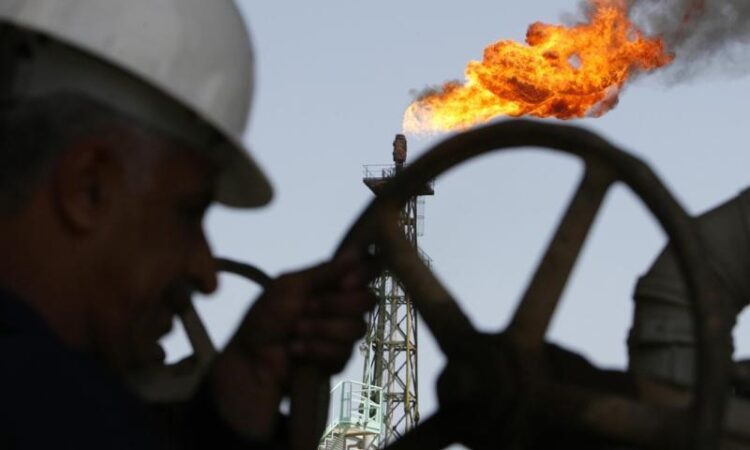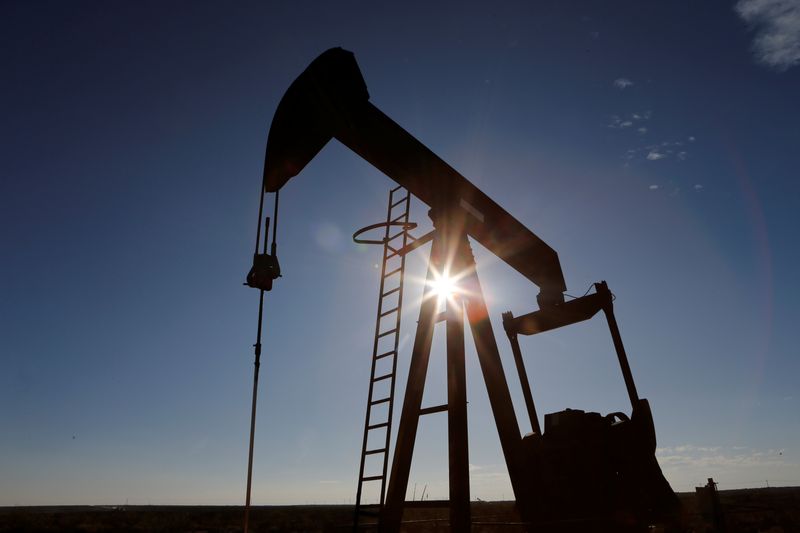

© Reuters. FILE PHOTO: The sun is seen behind a crude oil pump jack in the Permian Basin in Loving County, Texas, U.S., November 22, 2019. Picture taken November 22, 2019. REUTERS/Angus Mordant/File Photo
By Florence Tan
SINGAPORE (Reuters) -Oil prices jumped 1.5% in the first session of the New Year, due to potential supply disruptions in the Middle East after a naval clash in the Red Sea, and hopes of strong holiday demand and an economic stimulus in China, the top crude importer.
rose $1.20, or 1.5%, to $78.24 a barrel by 0438 GMT while U.S. West Texas Intermediate crude was at $72.66 a barrel, up $1, or 1.4%.
A Reuters survey of economists and analysts predicted Brent crude would average $82.56 a barrel this year, slightly higher than the average of $82.17 in 2023. Analysts forecast that weak global growth would cap demand, but expected geopolitical tensions to provide support.
U.S. helicopters repelled an attack on Sunday by Iran-backed Houthi militants on a Maersk container vessel in the Red Sea, sinking three Houthi ships and killing 10 militants, escalating risks of the Israel-Gaza war becoming a wider regional conflict.
“The oil price may be affected by the escalation of the situation in the Red Sea over the weekend and the peak demand season during China’s Spring Festival,” Leon Li, a Shanghai-based CMC Markets (LON:) analyst said, referring to the Lunar New Year holiday set for early February.
Li added that the forecast Chinese holiday demand was also raising expectations for a price rebound in January.
A wider conflict could close crucial waterways for the transportation of oil supplies such as the Red Sea and the Straits of Hormuz in the Gulf. After the naval battle, an Iranian warship sailed into the Red Sea, Iranian media reported on Monday.
At least four tankers transporting diesel and jet fuel from the Middle East and India to Europe are sailing around Africa to avoid the Red Sea, ship tracking data show.
In China, investors’ expectations for fresh stimulus measures rose after manufacturing activity in December shrank for a third month, government data showed on Sunday.
A stimulus could provide a fillip to economic growth, potentially boosting oil demand in the world’s second-largest oil consuming nation, and also lend support to prices.






